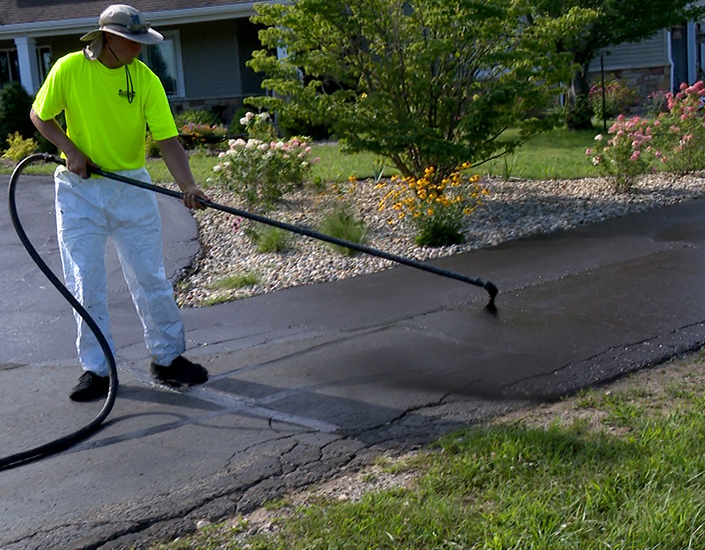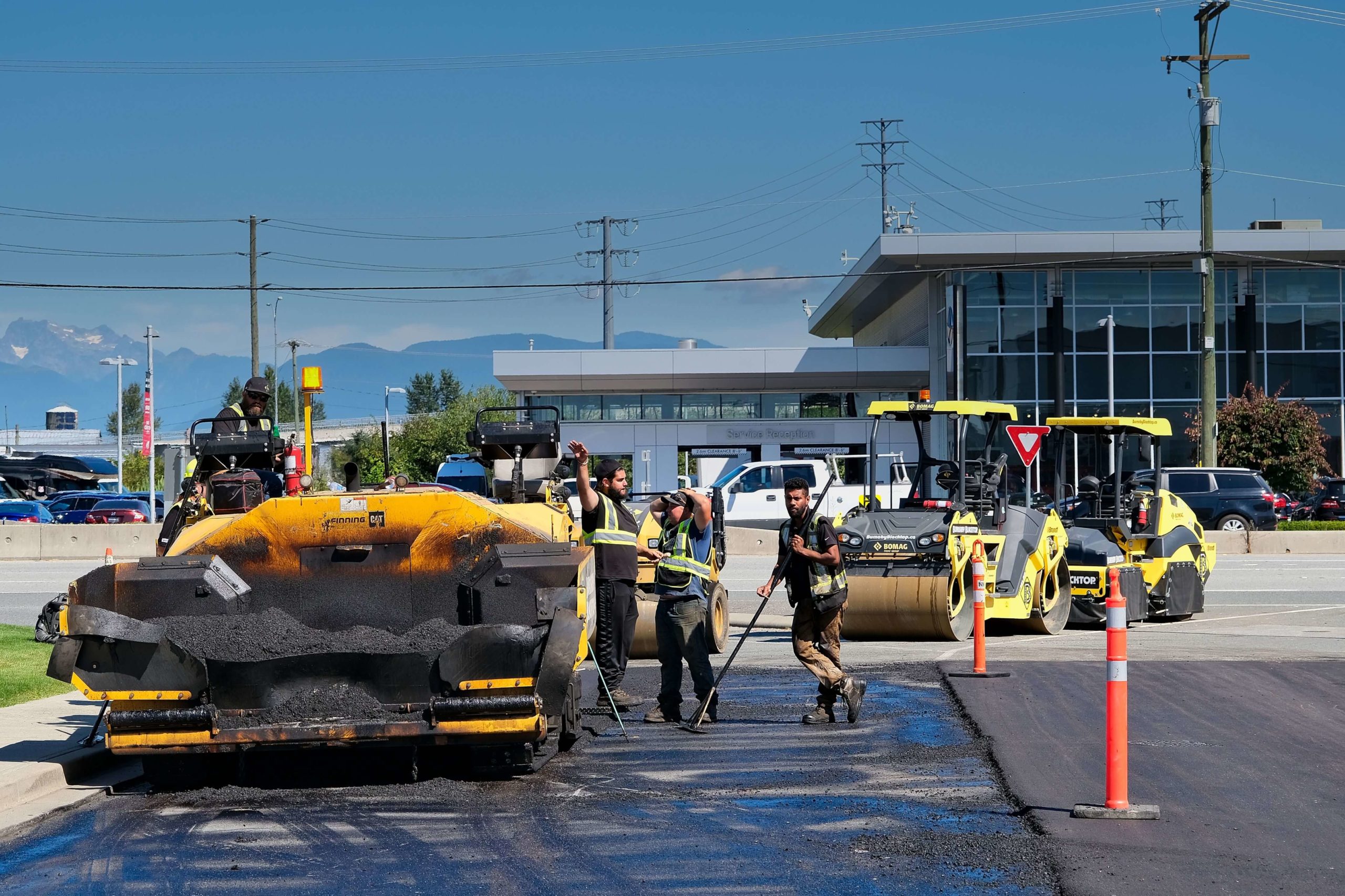Hot Mix Asphalt: A Sustainable Service for Pavement
Hot Mix Asphalt (HMA) has actually arised as a leading sustainable choice for sidewalk remedies, offering a myriad of environmental benefits and cutting-edge technologies. As the need for environmentally friendly construction methods grows, exploring the subtleties of HMA's sustainability can supply valuable insights into the future of sidewalk services.
Environmental Advantages of Warm Mix Asphalt

Moreover, Warm Mix Asphalt helps to mitigate metropolitan warmth island effects. Its dark shade takes in sunshine, decreasing the quantity of heat mirrored back right into the atmosphere contrasted to lighter-colored sidewalks. This can lower ambient temperature levels in metropolitan areas, lowering the demand for a/c and eventually lowering energy intake.
Additionally, Warm Mix Asphalt adds to improved stormwater administration. Its permeable nature allows water to reenergize and infiltrate the pavement groundwater materials, minimizing drainage and the threat of flooding. These environmental benefits make Hot Mix Asphalt a sustainable option for leading freeways and roads.
Energy Effectiveness in HMA Manufacturing
Is energy performance an essential aspect in the manufacturing of Hot Mix Asphalt (HMA)? Power plays a substantial function in the production of HMA, affecting both expense and environmental sustainability. One vital element of energy performance in HMA production is the usage of cozy mix asphalt (WMA) modern technologies.
Moreover, advancements in plant innovations have actually led to even more energy-efficient HMA production procedures. By optimizing energy use in HMA manufacturing, the sector can decrease its carbon impact while keeping premium sidewalk products.
Recyclability of Warm Mix Asphalt
The recyclability of Hot Mix Asphalt (HMA) is a pivotal aspect of its sustainability and long-lasting ecological effect. HMA is one of the most recycled materials in the USA, with over 100 million tons of reclaimed asphalt sidewalk (RAP) being recycled annually in new pavement building. Recycling HMA supplies several environmental benefits, such helpful hints as minimizing the demand for virgin materials, decreasing energy usage during production, and reducing the quantity of waste sent out to garbage dumps.
The process of reusing HMA includes grating the existing pavement, squashing it right into smaller pieces, and blending it with brand-new accumulation and asphalt binder to produce a recycled mix. Overall, the recyclability of HMA plays a significant duty in promoting sustainable techniques within the sidewalk industry.

Long-Term Efficiency of HMA
Asphalt sidewalks demonstrate resilience and durability over an extended period, mirroring the lasting performance of Warm Mix Asphalt (HMA) Additionally, innovations in HMA innovation, such as the usage of polymer-modified binders and warm mix asphalt, have check here actually additionally boosted the sturdiness and long life of HMA pavements. By focusing on quality building and construction and maintenance methods, HMA proceeds to confirm itself as a sustainable and economical solution for lasting sidewalk framework.

HMA: Sturdiness and Sustainability
Demonstrating both durability and sustainability, Warm Mix Asphalt (HMA) has become a foundation in the construction of durable pavement infrastructures - commercial parking lot paving. HMA's toughness stems from its capability to withstand hefty loads, rough climate problems, and high traffic volumes, making it a reliable selection for roads, highways, and airport terminal runways. The structure of HMA, which typically includes accumulations, binder, and filler, plays a critical function in boosting its long life and resistance to tear and put on
Moreover, HMA's sustainability hinges on its recyclability and energy-efficient manufacturing process. The capability to recycle redeemed asphalt pavement (RAP) in new HMA blends minimizes the demand for virgin materials and lessens the ecological impact of pavement building and upkeep. Additionally, the energy effectiveness of creating HMA depends on its reduced blending temperatures compared to various other sidewalk products, bring about reduced energy consumption and greenhouse gas exhausts.
Conclusion
In conclusion, warm mix asphalt (HMA) supplies a lasting service for sidewalk with its ecologically friendly characteristics. HMA's recyclability, power effectiveness in production, and lasting durability make it an environmentally friendly choice for roadway building.
HMA is one of the most recycled products in the United States, with over 100 million heaps of recovered asphalt sidewalk (RAP) being reused yearly in brand-new pavement building and construction.The process of reusing HMA entails milling the existing sidewalk, crushing it right into smaller items, and mixing it with brand-new aggregate and asphalt binder to develop a recycled mix.Asphalt pavements show toughness and resilience over a prolonged period, showing the long-term efficiency of Warm Mix Asphalt (HMA) Furthermore, innovations in HMA technology, such as the usage Source of polymer-modified binders and warm mix asphalt, have actually further improved the durability and durability of HMA sidewalks. The ability to reuse redeemed asphalt sidewalk (RAP) in new HMA combinations decreases the demand for virgin materials and reduces the ecological impact of pavement building and construction and maintenance.
Comments on “Change Your Property's Looks: Commercial Car Park Leading and Asphalt Sealing Solutions”